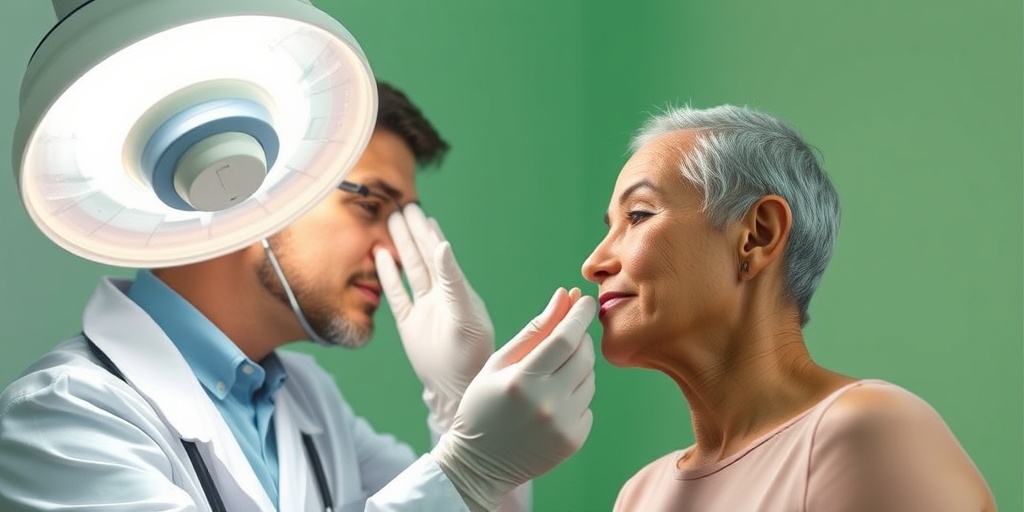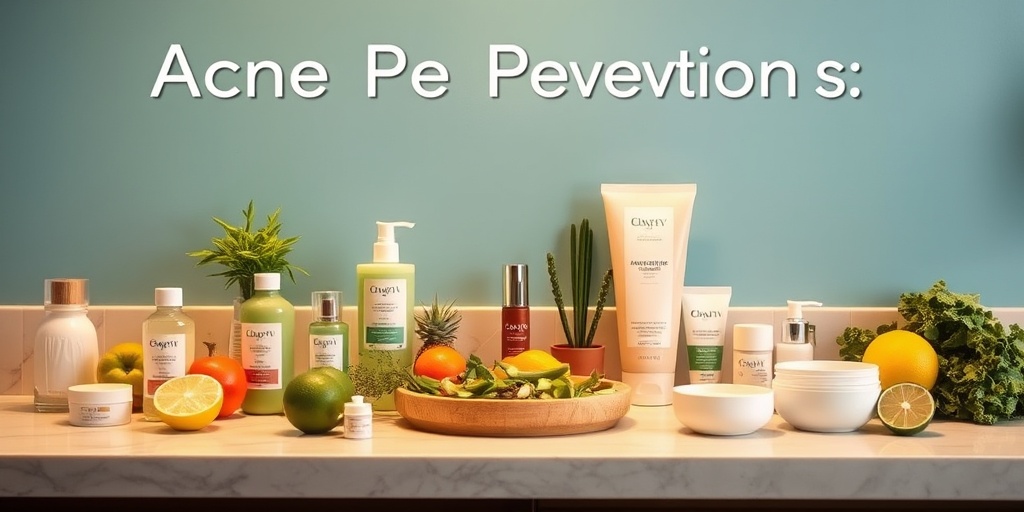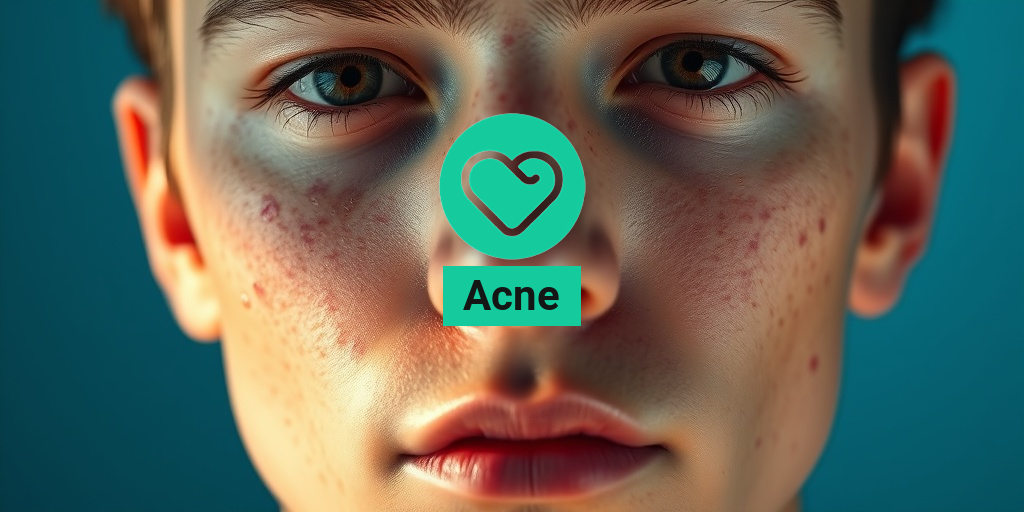What Is Acne?
Acne is a common skin condition that affects millions of people worldwide, regardless of age or gender. It primarily occurs when hair follicles become clogged with oil, dead skin cells, and bacteria. This blockage can lead to various types of blemishes, including pimples, blackheads, and cysts. While acne is often associated with adolescence, it can persist into adulthood or even begin later in life.
Understanding the Causes of Acne
To effectively manage and treat acne, it’s essential to understand its underlying causes. Here are some of the most common factors that contribute to the development of acne:
- Hormonal Changes: Fluctuations in hormones, particularly during puberty, menstruation, or pregnancy, can increase oil production in the skin.
- Excess Oil Production: Overactive sebaceous glands can lead to an excess of sebum, which clogs pores.
- Dead Skin Cells: When dead skin cells do not shed properly, they can accumulate and block hair follicles.
- Bacteria: The presence of Propionibacterium acnes, a type of bacteria that thrives in clogged pores, can lead to inflammation and infection.
- Diet and Lifestyle: Certain foods, stress, and lack of sleep can also exacerbate acne symptoms.
Types of Acne
Acne can manifest in various forms, each requiring different approaches to treatment. The most common types include:
- Acne Vulgaris: The most prevalent form, characterized by blackheads, whiteheads, and inflamed pimples.
- Cystic Acne: A severe type that results in painful, deep cysts under the skin.
- Acne Scars: Marks left on the skin after acne lesions heal, which can be a source of distress for many individuals.
Acne Symptoms
Recognizing the symptoms of acne is crucial for early intervention and effective treatment. The symptoms can vary depending on the severity of the condition and may include:
Common Symptoms of Acne
- Whiteheads: Small, raised bumps that remain under the skin’s surface.
- Blackheads: Open comedones that appear dark due to oxidation of the oil and dead skin cells.
- Pimples: Red, inflamed bumps that may be painful and filled with pus.
- Cysts: Large, painful lumps beneath the skin that can lead to scarring.
- Skin Changes: Areas of the skin may become oily or exhibit changes in texture.
Emotional and Psychological Impact
Beyond physical symptoms, acne can also have a significant emotional and psychological impact. Many individuals experience feelings of embarrassment, low self-esteem, and anxiety due to their skin condition. It’s essential to address these feelings and seek support when needed. Resources like Yesil Health AI (yesilhealth.com) can provide valuable information and guidance on managing both the physical and emotional aspects of acne.
When to Seek Professional Help
If you find that your acne is persistent, severe, or causing significant distress, it may be time to consult a dermatologist. They can offer tailored treatment options, including:
- Topical treatments (e.g., retinoids, benzoyl peroxide)
- Oral medications (e.g., antibiotics, hormonal treatments)
- Procedures (e.g., chemical peels, laser therapy)
In conclusion, understanding what acne is and recognizing its symptoms can empower individuals to take control of their skin health. With the right knowledge and resources, effective management and treatment are within reach. Remember, you are not alone in this journey! 🌟

Types of Acne
Acne is a common skin condition that affects millions of people worldwide, often during their teenage years but can persist into adulthood. Understanding the different types of acne is crucial for effective treatment and management. Here are the main types of acne you should know about:
1. Acne Vulgaris
This is the most common form of acne, characterized by the presence of blackheads, whiteheads, and pustules. Acne vulgaris occurs when hair follicles become clogged with oil and dead skin cells. It typically appears on the face, back, and shoulders.
2. Cystic Acne
Cystic acne is a severe form of acne that results in large, painful cysts beneath the skin. These cysts can be inflamed and are often filled with pus. Cystic acne is more common in males and can lead to significant scarring if not treated properly.
3. Hormonal Acne
Hormonal acne is primarily linked to fluctuations in hormones, often occurring during puberty, menstruation, or pregnancy. It typically manifests as deep, painful pimples along the jawline and chin. This type of acne can be particularly stubborn and may require specific treatments targeting hormonal balance.
4. Acne Rosacea
Unlike other types of acne, acne rosacea primarily affects adults and is characterized by redness, visible blood vessels, and small, pus-filled bumps. It often appears on the face and can be triggered by various factors, including spicy foods, alcohol, and stress.
5. Acne Mechanica
This type of acne is caused by friction or pressure on the skin, often from wearing tight clothing, helmets, or sports equipment. It can lead to breakouts in areas where the skin is constantly irritated. Keeping the affected areas clean and avoiding tight-fitting gear can help prevent acne mechanica.
6. Acne Inversa
Also known as hidradenitis suppurativa, acne inversa is a chronic skin condition that causes painful lumps under the skin, usually in areas where skin rubs together, such as the armpits and groin. This type of acne can be challenging to treat and may require medical intervention.
Acne Causes
Understanding the causes of acne is essential for effective treatment and prevention. Acne can be triggered by a variety of factors, including:
1. Hormonal Changes
Hormonal fluctuations, particularly during puberty, menstruation, or pregnancy, can lead to increased oil production in the skin, contributing to acne development. Androgens, a group of hormones that includes testosterone, can cause the sebaceous glands to enlarge and produce more sebum, leading to clogged pores.
2. Excess Oil Production
When the skin produces too much oil, it can mix with dead skin cells and clog hair follicles. This excess oil is often a result of hormonal changes or genetic predisposition. Maintaining a proper skincare routine can help manage oil levels.
3. Bacteria
The skin naturally harbors bacteria, but an overgrowth of Propionibacterium acnes (P. acnes) can lead to inflammation and acne. This bacterium thrives in clogged pores, leading to the formation of pimples and cysts.
4. Diet
While the relationship between diet and acne is still being studied, some evidence suggests that certain foods may exacerbate acne. High-glycemic foods, dairy products, and sugary snacks can trigger breakouts in some individuals. A balanced diet rich in fruits, vegetables, and whole grains may help improve skin health.
5. Stress
Stress can trigger hormonal changes that lead to increased oil production and inflammation, worsening acne. Finding effective stress management techniques, such as exercise, meditation, or hobbies, can be beneficial for both mental health and skin clarity.
6. Skincare Products
Using the wrong skincare products can contribute to acne. Heavy, oily products can clog pores, while certain ingredients may irritate the skin. It’s essential to choose non-comedogenic products that won’t exacerbate acne.
By understanding the types and causes of acne, individuals can take proactive steps toward effective treatment and management. Whether it’s through lifestyle changes, skincare routines, or medical interventions, addressing these factors can lead to clearer, healthier skin. 🌟

Risk Factors for Acne
Acne is a common skin condition that affects millions of people worldwide, regardless of age or gender. Understanding the risk factors for acne can help you take proactive steps to manage and prevent breakouts. Here are some of the most significant factors that contribute to the development of acne:
Hormonal Changes
One of the primary triggers for acne is hormonal fluctuations. This is particularly evident during puberty, menstruation, pregnancy, and even menopause. Increased levels of androgens, which are male hormones present in both men and women, can lead to an overproduction of sebum (oil) in the skin, resulting in clogged pores and acne.
Genetics
Your family history plays a crucial role in your likelihood of developing acne. If your parents had acne, there’s a higher chance you might experience it too. Genetic predisposition can influence how your skin reacts to hormonal changes and environmental factors.
Dietary Choices
What you eat can significantly impact your skin health. Diets high in refined sugars and dairy products have been linked to increased acne severity. Foods that cause spikes in insulin levels can also lead to higher oil production. Consider incorporating more whole foods, fruits, and vegetables into your diet for better skin health. 🥦🍓
Stress Levels
Stress doesn’t directly cause acne, but it can exacerbate existing conditions. When you’re stressed, your body produces more cortisol, a hormone that can lead to increased oil production and inflammation. Finding effective stress management techniques, such as yoga or meditation, can help keep your skin clear.
Skin Care Products
Using the wrong skin care products can contribute to acne. Heavy, oily, or comedogenic products can clog pores and lead to breakouts. Always look for products labeled as “non-comedogenic” or “oil-free” to minimize the risk of acne. 🧴
Environmental Factors
Environmental factors such as pollution, humidity, and exposure to certain chemicals can also trigger acne. Pollutants can irritate the skin and lead to inflammation, while high humidity can increase oil production. Regular cleansing and using protective skincare can help mitigate these effects.
Acne Diagnosis
Diagnosing acne is typically straightforward, but it’s essential to understand the different types and their characteristics. A proper diagnosis can lead to effective treatment options tailored to your specific needs.
Types of Acne
Acne can manifest in various forms, including:
- Acne Vulgaris: The most common type, characterized by blackheads, whiteheads, and pimples.
- Acne Scars: Resulting from severe acne, these can leave lasting marks on the skin.
- Acne Inversa: A less common form that occurs in areas like the armpits and groin, often associated with painful lumps.
Consultation with a Dermatologist
If you’re struggling with persistent acne, it’s advisable to consult a dermatologist. They will conduct a thorough examination of your skin and may ask about your medical history, lifestyle, and skincare routine. This information helps them determine the best course of action.
Diagnostic Tests
In some cases, your dermatologist may recommend additional tests to rule out underlying conditions. These could include:
- Hormonal Testing: To check for hormonal imbalances that could be contributing to acne.
- Allergy Testing: To identify any allergens that may be affecting your skin.
Understanding Your Acne
Recognizing the type and severity of your acne is crucial for effective treatment. Keeping a diary of your breakouts, including when they occur and any potential triggers, can provide valuable insights for both you and your dermatologist. 📅
In summary, understanding the risk factors for acne and the diagnosis process can empower you to take control of your skin health. By being proactive and informed, you can work towards achieving clearer, healthier skin. 🌟

Acne Treatment Options
Acne is a common skin condition that affects millions of people worldwide, often leading to physical and emotional distress. Fortunately, there are numerous acne treatment options available that can help manage and reduce breakouts. Understanding these options can empower you to choose the best path for your skin.
Topical Treatments
Topical treatments are often the first line of defense against acne. These products are applied directly to the skin and can help reduce inflammation, unclog pores, and kill acne-causing bacteria. Here are some popular topical treatments:
- Benzoyl Peroxide: This powerful ingredient helps kill bacteria and reduce oil production. It’s available in various concentrations, so start with a lower strength to see how your skin reacts.
- Salicylic Acid: Known for its ability to penetrate pores, salicylic acid helps exfoliate the skin and prevent clogged pores. It’s particularly effective for treating blackheads and whiteheads.
- Retinoids: Derived from vitamin A, retinoids promote cell turnover and prevent clogged pores. They can also help fade acne scars over time.
- Topical Antibiotics: These can reduce inflammation and bacteria on the skin. They are often used in combination with other treatments for better results.
Oral Medications
For more severe cases of acne, oral medications may be necessary. These treatments work from the inside out and can be highly effective:
- Antibiotics: Oral antibiotics can help reduce bacteria and inflammation. They are typically prescribed for moderate to severe acne.
- Hormonal Treatments: For women, hormonal therapies such as birth control pills can help regulate hormones that trigger acne.
- Isotretinoin: This powerful medication is reserved for severe acne that hasn’t responded to other treatments. It can provide long-lasting results but comes with potential side effects, so close monitoring by a healthcare provider is essential.
Professional Treatments
If over-the-counter and prescription options aren’t effective, consider professional treatments:
- Chemical Peels: These treatments use acids to exfoliate the skin, helping to clear acne and improve skin texture.
- Laser Therapy: Laser treatments can reduce acne scars and inflammation, promoting clearer skin.
- Extraction Procedures: A dermatologist can safely extract blackheads and whiteheads, preventing further breakouts.
Acne Prevention Tips
Preventing acne is often easier than treating it. By adopting a few simple habits, you can significantly reduce your chances of breakouts. Here are some effective acne prevention tips:
Maintain a Consistent Skincare Routine
Establishing a daily skincare routine is crucial for keeping your skin healthy. Here are some steps to include:
- Cleanse: Use a gentle cleanser twice a day to remove dirt, oil, and makeup.
- Moisturize: Even oily skin needs hydration. Choose a non-comedogenic moisturizer to keep your skin balanced.
- Exfoliate: Regular exfoliation helps remove dead skin cells that can clog pores. Aim for 1-2 times a week with a gentle exfoliant.
Be Mindful of Your Diet
Your diet can play a significant role in your skin’s health. Consider these dietary tips:
- Limit Sugar and Dairy: Some studies suggest that high sugar and dairy intake may exacerbate acne.
- Stay Hydrated: Drinking plenty of water helps keep your skin hydrated and flushes out toxins.
- Incorporate Antioxidants: Foods rich in antioxidants, such as fruits and vegetables, can help combat inflammation.
Avoid Touching Your Face
Touching your face can transfer bacteria and oils from your hands to your skin, leading to breakouts. Try to keep your hands away from your face, and always wash your hands before applying skincare products.
Choose Non-Comedogenic Products
When selecting makeup and skincare products, look for those labeled as non-comedogenic. These products are formulated to not clog pores, reducing the risk of acne.
By implementing these acne prevention tips and exploring various treatment options, you can take control of your skin health and reduce the impact of acne on your life. Remember, consistency is key, and consulting with a dermatologist can provide personalized guidance tailored to your specific needs. 🌟

Frequently Asked Questions About Acne
What is Acne?
Acne is a common skin condition that occurs when hair follicles become clogged with oil and dead skin cells. It can manifest as pimples, blackheads, and cysts, primarily affecting the face, back, and shoulders.
What Causes Acne?
Several factors can contribute to the development of acne, including:
- Hormonal changes, especially during puberty or menstruation
- Excess oil production
- Bacterial growth on the skin
- Clogged pores due to dead skin cells
- Certain medications and dietary factors
How Can I Treat Acne?
Treatment options for acne vary based on severity and may include:
- Over-the-counter topical treatments containing benzoyl peroxide or salicylic acid
- Prescription medications, such as antibiotics or retinoids
- Hormonal treatments for women
- Professional procedures like chemical peels or laser therapy
What Are Acne Scars and How Can They Be Treated?
Acne scars are marks left on the skin after acne lesions heal. Treatment options include:
- Dermal fillers
- Microneedling
- Laser therapy
- Chemical peels
Can Diet Affect Acne?
Yes, certain foods may trigger or worsen acne in some individuals. Foods high in sugar and dairy products are often cited as potential culprits. Maintaining a balanced diet rich in fruits, vegetables, and whole grains can help improve skin health.
Is Acne Only a Teenage Problem?
No, while acne is most common during adolescence, it can affect individuals of all ages, including adults. Hormonal changes, stress, and lifestyle factors can contribute to adult-onset acne.
When Should I See a Dermatologist?
If your acne is severe, persistent, or causing emotional distress, it is advisable to consult a dermatologist. They can provide tailored treatment options and help manage your condition effectively.
Can Stress Cause Acne?
Yes, stress can exacerbate acne by triggering hormonal changes that increase oil production in the skin. Managing stress through relaxation techniques and a healthy lifestyle can be beneficial.
Are There Any Home Remedies for Acne?
Some people find relief from acne using home remedies such as:
- Tea tree oil for its antibacterial properties
- Honey for its soothing effects
- Aloe vera to reduce inflammation
However, it’s essential to patch-test any remedy to avoid irritation.
Can Makeup Cause Acne?
Some makeup products can clog pores and contribute to acne. It’s important to choose non-comedogenic products and ensure proper removal of makeup at the end of the day.
How Long Does Acne Last?
The duration of acne varies from person to person. While some may experience it for a few months, others may deal with it for years. Early treatment can help reduce the duration and severity of outbreaks.




